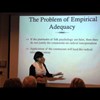radikala
Radical right-wing parties in Europe: What populism got to do with it?
Journal of Language and Politics, Volume 16, Issue 4, pp. 485–496. Abstract In this paper I discuss, critically, the literature on populism and the extent to which it applies to the contemporary radical
Climate Change Denial among Radical Right-Wing Supporters
i: Sustainability The linkage between political right-wing orientation and climate change denial is extensively studied. However, previous research has almost exclusively focused on the mainstream righ= 2216), a mainstream right-wing party (the Conservative Party,,= 634), and a mainstream center-left party (Social Democrats,= 548) in Sweden. Across the analyses, distrust of public service media (Swedish Television,), socioeconomic right-wing attitudes, and antifeminist attitudes outperformed the effects of anti-immigration attitudes and political distrust in explaining climate change denial, perhaps because of a lesser distinguishing capability of the latter mentioned variables. For example, virtually all Sweden Democrat supporters oppose immigration. Furthermore, the effects of party support, conservative ideologies, and belief in conspiracies were relatively weak, and vanished or substantially weakened in the full models. Our results suggest that socioeconomic attitudes (characteristic for the mainstream right) and exclusionary sociocultural attitudes and institutional distrust (characteristic for the contemporary European radical right) are important predictors of climate change denial, and more important than party support per se.
A Game of Stars: Active SETI, radical translation and the Hobbesian trap
Futures Volume: 101, pp. 46–54. doi.org/10.1016/j.futures.2018.06.007 Abstract Among scholars dedicated to Search for Extra-terrestrial Intelligence (SETI), the risks and possibilities of actively contac
Voting for the Radical Right in Swedish Municipalities: Social Marginality and Ethnic Competition?
2011. Scandinavian Political Studies34: 202-225.

Implicit Mind: Radical Interpretation and Implicit Cognition with Anandi Hattiangadi
Recording from the Implicit Mind Workshop at the Institute for Futures Studies in Stockholm, May 2015.
Radical Right-wing Populism in Denmark and Sweden: Explaining Party System Change and Stability
2010. The SAIS Review of International Affairs 30: 57-71. AbstractThis paper aims to present possible explanations as to why radical right-wing populist parties have been highly successful in Denmark but
Xenophobia among radical and mainstream right-wing party voters: prevalence, correlates and influence on party support
Ethnic and Racial Studies, Vol. 45, 2022 - Issue 16 Abstract Considering the current political relevance of anti-immigration sentiments, we examined preference to avoid interacting with immigrants – conc
Radical right‐wing voters from right and left: Comparing Sweden Democrat voters who previously voted for the Conservative Party or the Social Democratic Party
Scandinavian Political Studies, doi.org/10.1111/1467-9477.12147 Abstract As in many other European countries, the political system has undergone rapid changes in Sweden while a radical right‐wing party –
Jens Rydgren
I am Professor of Sociology at Stockholm University. My main areas of research are political sociology and ethnic relations. At Stockholm University I am currently directing a research projects where
Michael Grätz: Measuring Equality of Opportunity
Venue: Institute for Futures Studies, Holländargatan 13 in Stockholm Research seminar with Michael Grätz, associate professor at the Swedish Institute for Social Research, Stockholm University. He is al








